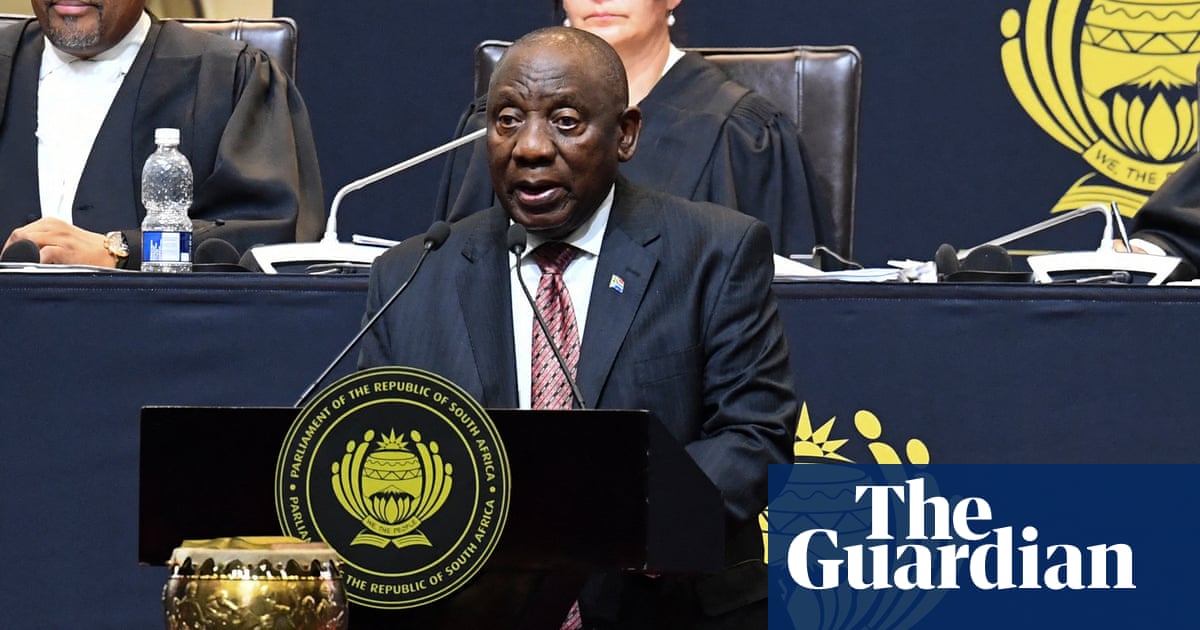South Africa has just experienced a dramatic political shift, marking a new era for the country.
For the first time since the end of apartheid, the African National Congress (ANC), which has ruled for over 30 years, lost its parliamentary majority.
This historic development forced the ANC to form a coalition government with the Democratic Alliance (DA), their longtime rival.
This unexpected partnership, dubbed a ‘government of national unity’, brings together the ANC, a party with a history of liberation and socialist policies, and the DA, a centrist, pro-business party.
This coalition marks a turning point in South African politics, as the country navigates a path towards shared governance and problem-solving.
With Cyril Ramaphosa re-elected as president, the coalition government faces a multitude of challenges, including tackling widespread poverty, inequality, and unemployment.
This article explores the implications of this new era, examining the coalition’s dynamics, the priorities of the new government, and the road ahead for South Africa.
A Historic Coalition: A New Era of Shared Governance
South Africa’s new government is a big change. It’s the first time in a long time that no one party has the most votes. This means they have to work together, like sharing a toy. The African National Congress (ANC) party, which has been in charge for a long time, and the Democratic Alliance (DA) party, which has been against the ANC, decided to work together. It’s a bit like two kids who don’t usually play together, suddenly deciding to build a sandcastle together.
This new team of people working together is called a coalition. It’s a big deal because it shows that people in South Africa want change. It might take some time for them to learn to work together well, but it’s a chance for everyone to be heard. This new government is a big step for South Africa, and it’s exciting to see what will happen next!.
Ramaphosa’s Second Term: A Balancing Act of Economic Stability and Social Change
Cyril Ramaphosa has been re-elected as South Africa’s president for a second term. This victory comes after a historic agreement between the African National Congress (ANC) and the Democratic Alliance (DA) to form a coalition government. This new era for South Africa presents a significant challenge for Ramaphosa, as he faces the task of balancing the need for economic stability with the demands for social change.
The ANC’s loss of its parliamentary majority in the recent elections highlights the growing dissatisfaction among South Africans, who are grappling with high levels of poverty, inequality, and unemployment. Ramaphosa’s second term will be marked by his efforts to address these issues while also navigating the complexities of a coalition government.
The coalition government, formed by the ANC and the DA, is a significant shift in South African politics. It presents both opportunities and challenges. The DA, known for its pro-business policies, will likely influence Ramaphosa’s economic agenda. At the same time, the ANC’s commitment to social justice will be crucial in ensuring that the government remains responsive to the needs of all South Africans.
The ANC’s Decline and the Rise of New Players: A Shift in South Africa’s Political Landscape
The South African political landscape has been shaken up in recent elections. For the first time since the end of apartheid, the African National Congress (ANC) lost its majority in Parliament. This means that they can’t make decisions on their own anymore and need to work with other parties to get things done.
Many South Africans are unhappy with the ANC because things haven’t been getting better. There are a lot of people without jobs, and public services like hospitals and schools aren’t working well.
The ANC’s decline has opened the door for new parties to become more powerful. The Democratic Alliance (DA) is one of them, and they’ve teamed up with the ANC to form a coalition government. This is a big change, as the DA and the ANC have been rivals for a long time.
The Challenges Ahead: Addressing Deep-Rooted Issues and Uniting a Divided Nation
South Africa faces a lot of problems. It’s like a house with cracks in the walls and a leaky roof. There’s poverty, inequality, and many people don’t have jobs. It’s tough to fix these problems because many people disagree about how to do it.
Ramaphosa has to bring everyone together, even people who don’t like each other. It’s like trying to get different puzzle pieces to fit together. He needs to make sure everyone feels heard and respected, even if they have different opinions.
He has to make sure that everyone feels like they have a chance to make things better. He needs to fix the things that are broken and make sure everyone feels like they belong in South Africa.
South Africa’s political scene has taken a surprising turn, marking a new era for the nation.
The African National Congress (ANC), which has ruled since the end of apartheid, lost its majority in parliament, leading to the formation of a coalition government.
This coalition, bringing together the ANC and its long-time rival, the Democratic Alliance (DA), is a significant shift.
While this unity government could bring stability and collaboration, it also raises questions about the future of South Africa’s political landscape.
Will this coalition be able to address the challenges facing the nation, such as poverty, inequality, and unemployment?
Only time will tell how this new era will unfold, but one thing is certain: South Africa is entering a period of change and uncertainty.
As we move forward, it is crucial to stay informed about the developments in South African politics and the impact they have on the country’s future.
